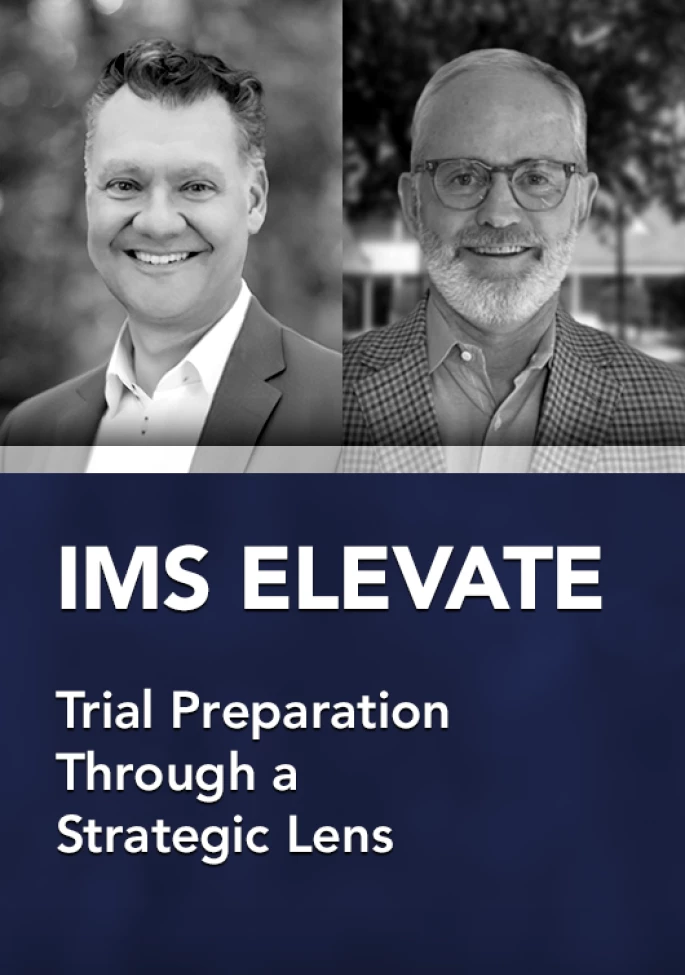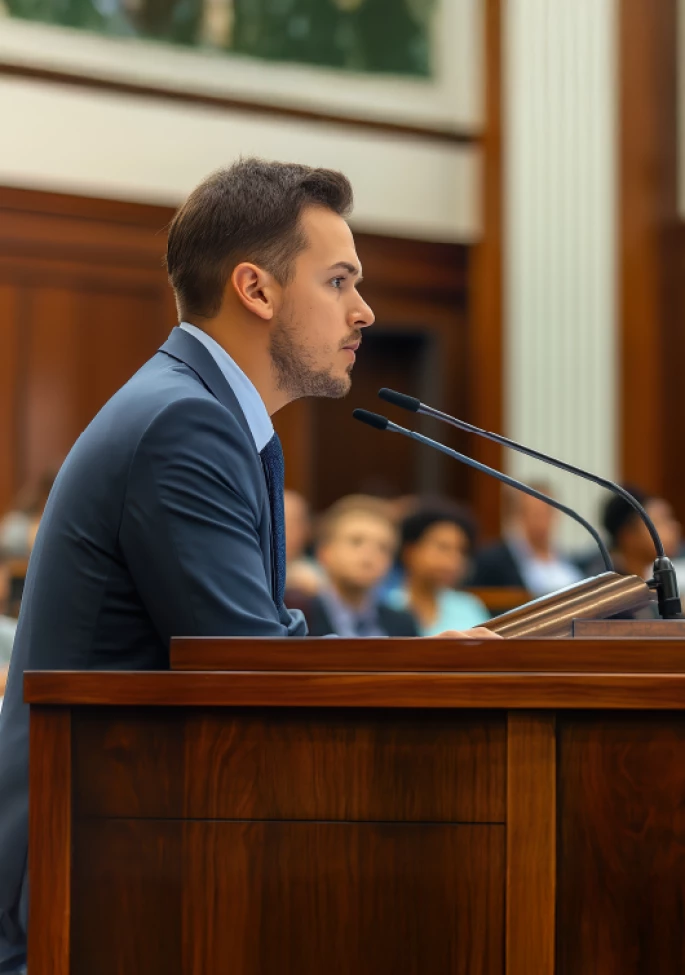At IMS Legal Strategies, we know that successful trial outcomes are rarely the result of a single, game-changing moment. Instead, they are built on preparation, precision, and the cumulative impact of small, strategic decisions. In a recent IMS Elevate livestream event, Senior Strategy & Jury Consulting Advisor Chris Dominic sat down with Senior Strategy Advisor Andrew “Andy” Spingler to explore how attorneys can elevate their trial performance by planning with the end in mind.
With decades of experience supporting high-stakes litigation, Andy brings a philosophy that challenges teams to think beyond discovery battles and courtroom logistics. His approach? Begin with the closing argument. Visualize the trial’s final moments, then work backward to develop strategy, themes, and execution that will lead the jury exactly where you want them to go.
“Start at the end,” Andy advised. “What will your closing sound like? What do you want the jury to believe, to feel, and to conclude? From there, build your opening, prepare your witnesses, and align your team. Everything should support that vision.”
Build a Unified Trial Team
One of the most common pitfalls Andy sees is disjointed trial preparation and lawyers working in silos without a shared understanding of the end goal. He emphasized the power of collaboration: engaging every team member, from junior associates to experts, in envisioning what the courtroom experience will look and feel like.
“There’s a saying I really believe in,” Andy shared. “‘Those who help create are more likely to support.’ If your entire team contributes to shaping the trial strategy, you’re more likely to see that strategy executed with precision and passion.”
He compared trial work to professional sports: victory rarely comes from home runs. Instead, it is the “small ball”—the details, the consistency, the coordination—that adds up to incremental advantage. That is how cases are won, especially in close trials.
Practice: Essential, Not Optional
Another key takeaway from our senior advisors? Preparation is not just about reading briefs and planning exhibits. It is also about rehearsal. Just as athletes would not dream of competing without practicing their form, trial attorneys should not walk into court without voicing their openings, testing their arguments aloud, and refining their delivery.
“It’s a skill,” Chris noted. “And like any skill, it needs to be practiced out loud. Thinking about your opening isn’t the same as delivering it. The discomfort of rehearsal in private saves you from missteps in public.”
Andy echoed this sentiment: “Jurors can sense unpreparedness instantly. And when they do, you’ve lost credibility. Great trial lawyers rehearse—not just once, but again and again. It’s part of showing respect for the process and for the jury.”
Prepare Like Reputations Are on the Line
Spingler left our listeners with a classic trial consultant truth: every case falls into one of three categories. A third you cannot lose, a third you cannot win, and a third where your preparation makes all the difference. But here is the catch—you never know which category you are in until the end. “You have to treat every case like it’s the one that will make your reputation,” he says. “Because it might be.”
One of Andy’s favorite stories came from legendary trial attorney John Keker. On the first day of trial, Keker looked at Andy and said, “I love this day. Because today, we walk through those doors—and you either put up or shut up.”
This is a sentiment that captures the essence of trial work. You cannot fake preparation or shortcut strategy. You have to do the work. And with the right mindset, the right team, and the right preparation, you will be ready when the doors swing open.
Rely on Strategic Partners
Today’s trial lawyers are navigating an increasingly complex legal landscape marked by evolving jury dynamics, mounting caseloads, and the rising reality of nuclear verdicts. In this high-stakes environment, successful trial teams understand that preparation is more than just planning; it is practice. As Chris reminded us, “You wouldn’t just think about playing golf or dancing—you’d practice it ‘out loud’ and often.” The same is true for trial work: it is not enough to write the opening or closing; you have to stand up and practice the delivery.
The IMS litigation consulting team knows the strongest trial strategies are forged through collaboration, refinement, and drawing on diverse perspectives. We partner with respected law firms and corporate counsel from coast to coast to elevate legal strategies, align preparation with purpose, and protect hard-earned reputations.







